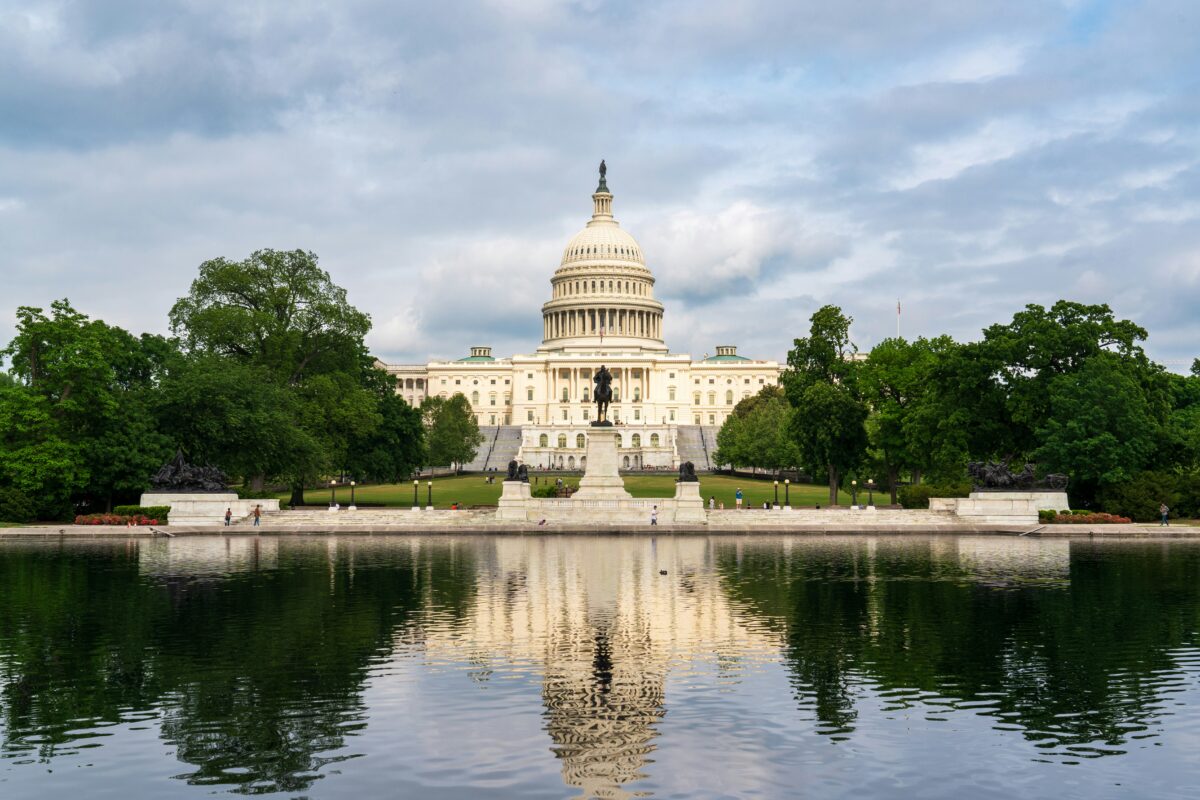Climate action on a political level is not foreign to Democratic presidential candidate Kamala Harris, yet its place in the roughly two-month-old Harris-Walz campaign is being questioned by both allies and opposites.
Vice President Harris and current President Joe Biden arguably ran on the most pro-climate action platform of any past presidential ticket. They have made strides concerning clean energy and environmental justice, including the passing of the controversial Inflation Reduction Act of 2022, and taken certain steps through the Environmental Protection Agency (EPA) to cut down on hydrofluorocarbons (HFCs) and methane according to the World Resources Institute (WRI).
Harris previously endorsed the proposed Green New Deal of 2019 and stood alongside Biden as he re-entered the United States back into the Paris Agreement, a binding treaty with goals to set carbon neutrality targets for major industrialized nations and slow global temperature rise.
However, under the Biden-Harris Administration, fossil fuel production in the form of oil and natural gas has only continued to break records, and now Harris is faced with the challenge of maintaining the support of climate activist groups as well as appealing to politicians and citizens worried about the economic consequences of divestment from fossil fuels.
“Republicans can please their base simply by chanting ‘Drill, Baby, Drill,’ as meaningless as the mantra might be. Democrats, however, must walk a fine and wavy and often contradictory line to avoid alienating environmentalists, their oil-state colleagues and the voting public,” wrote High Country News Reporter, Jonathan Thompson.
This is a likely explanation as to why Harris has cooled down on previously progressive statements relating to the reduction of oil, gas, and coal production.
A notable change from last election season to now is Harris’s stance on fracking — the extraction of natural gas by injecting high pressure liquid into shale — which she signaled she would ban in 2019. However, on Tuesday, September 10th, 2024 the night of the presidential debate, when inquired about this, she withdrew the statement. (Bowman, 2024).
“I made that very clear in 2020. I will not ban fracking. I have not banned fracking as Vice President of the United States. And, in fact, I was the tie-breaking vote on the Inflation Reduction Act, which opened new leases for fracking. My position is that we have got to invest in diverse sources of energy so we reduce our reliance on foreign oil. We have had the largest increase in domestic oil production in history because of an approach that recognizes that we cannot over rely on foreign oil” Harris said (ABC News).
The Harris-Waltz campaign has not entirely shielded away from any mention of climate action. The official website campaign promises to build a “thriving clean energy economy, all while ensuring America’s energy security and independence with record energy production,” and to “unite Americans to tackle the climate crisis.” As president, Harris says she will “advance environmental justice, [protect] public lands and public health, [increase] resilience to climate disasters, [lower] household energy costs, [create] millions of new jobs, and [continue] to hold polluters accountable to secure clean air and water for all.”
However, in her speech at the 2024 Democratic National Convention (DNC), Harris notably mentioned the topic of climate change only once, before quickly tying the issue into her economic goals for the country.
“In this election, many (other) fundamental freedoms are at stake” she said. “The freedom to breathe clean air, and drink clean water and live free from the pollution that fuels the climate crisis. That’s why we will create what I call an opportunity economy, an opportunity economy where everyone has the chance to compete and a chance to succeed” (New York Times).
Harris’ address of climate policy in the debate, the DNC, and her campaign site has structured her climate action plan as an appeal to the “personal freedoms” and economic interests of voters, which undoubtedly are two of the most significant issues on the 2024 ballot according to conducted surveys.
An unsteady economy was the first topic addressed in the debate between former President Trump and Harris.
“I want to begin tonight with the issue voters repeatedly say is their number one issue, and that is the economy and the cost of living in this country,” said ABC News Host and Moderator of the 2024 Presidential Debate, David Muir.
It is not a misinformed take. According to an early 2024 survey conducted by the Pew Research center, inflation and the affordability of healthcare rank as the number one and three most important issues, respectively, by American voters, with the ability of democrats and republicans to work together coming in at number two, and federal budget deficit coming in at number five. (Pew Research Center, Nadeem, 2024).
With economic struggle on the ballot, the stigma around high-cost renewable energy such as solar and wind power is not to be taken lightly. Though Harris has publicly neutralized her positions on many progressive climate reforms since accepting the Democratic nomination, her historical support for the transition to clean energy has led to skepticism from her opponents and fossil fuel energy representatives in the country.
Both the American Exploration and Production Council and the American Petroleum Institute have expressed doubts about her positions on petroleum, oil, and natural gas and further emphasis on “clean” technology.
According to Financial Times, many companies under Big Oil as well as former President Donald Trump have criticized her for being anti-energy and anti production.
“Based on what we know of her past positions, the bills that she has sponsored, and her past statements, she’s taken a pretty aggressively anti-energy and anti-oil and gas industry stand,” said Anne Bradbury, head of the American Exploration and Production Council. “These are significant and major policy questions that impact every American family and business, and which voters deserve to understand better when making their choice in November,” she said to Financial Times back in August.
While a recent survey suggested that around 67% of Americans believed the United States should prioritize the creation of renewables, 68% supported the continued growth of the country under fossil fuels (Pew Research Center, Kennedy, 2024).
It is likely that Harris is looking to alienate as few voters as possible, leading her to avoid a strong stance on climate justice during the campaign.
“This doesn’t look accidental, it looks like a deliberate choice,” according to Kevin Book, managing director of ClearView Energy Partners, a Washington-based research firm, who was interviewed by the New York Times about the sparse mentioning of climate in both Kamala Harris’ and Tim Waltz’s speech.
“I think they are worried if she takes a strong position on climate, even it fits the same position that Biden took, it will make her look too progressive.”
Sources:
ABC News Network. (n.d.). READ: Harris-Trump presidential debate transcript. ABC News. https://abcnews.go.com/Politics/harris-trump-presidential-debate-transcript/story?id=113560542
Brian Kennedy, C. F. and A. T. (2023, June 28). 1. what Americans think about an energy transition from fossil fuels to renewables. Pew Research Center. https://www.pewresearch.org/science/2023/06/28/what-americans-think-about-an-energy-transition-from-fossil-fuels-to-renewables/
Bowman, E. (2024, August 31). Harris says she won’t ban fracking. what to know about the controversial topic. NPR. https://www.npr.org/2024/08/30/nx-s1-5096107/what-is-fracking-explained
Friedman, L. (2024, July 22). Here’s where Kamala Harris stands on climate. The New York Times. https://www.nytimes.com/2024/07/22/climate/kamala-harris-climate-environment.html
Kamala Harris for president. Kamala Harris for President: Official Campaign Website. (2024, October 22). https://kamalaharris.com/
Lashof, D. (2024, July 30). Tracking progress: Climate action under the biden administration. World Resources Institute. https://www.wri.org/insights/biden-administration-tracking-climate-action-progress
Nadeem, R. (2024, May 23). 2. top problems facing the U.S. Pew Research Center. https://www.pewresearch.org/politics/2024/05/23/top-problems-facing-the-u-s/
Smyth , J., & Williams , A. (n.d.). Big oil calls on Kamala Harris to come clean on her energy and climate plans. Subscribe to read. https://www.ft.com/content/d85a2ae2-3693-4132-9a48-8e175997f241
The New York Times. (2024, August 23). Full transcript of Kamala Harris’s Democratic convention speech. https://www.nytimes.com/2024/08/23/us/politics/kamala-harris-speech-transcript.html
Thompson, J. (2024, September 30). Kamala Harris tries to navigate the convoluted politics of oil and Gas. High Country News. https://www.hcn.org/articles/kamala-harris-tries-to-navigate-the-convoluted-politics-of-oil-and-gas/

